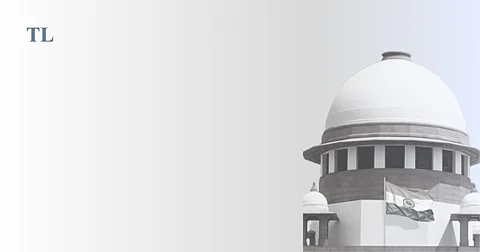

With repeated delays by presiding officers across the country in acting on defection pleas, the Supreme Court today called on Parliament to consider whether entrusting the task of adjudicating disqualification petitions to the Speaker or Chairman of legislatures under the Tenth Schedule has effectively served its purpose in combating political defections.
Delivering judgment on a set of petitions involving ten MLAs of Bharat Rashtra Samithi (‘BRS’) who crossed over to the Congress in March–April 2024, a bench of Chief Justice of India B.R. Gavai and Justice Augustine George Masih directed the Speaker of the Telangana Legislative Assembly to decide all disqualification petitions pending against the MLAs within three months from the date of the verdict.
“If we do not issue any direction, it will amount to permitting the Speaker to repeat the widely criticised situation of ‘operation successful, patient died’,” Chief Justice Gavai, who authored the judgement, remarked.
The Court said that although it does not possess advisory jurisdiction, the continued delays in deciding disqualification petitions raise important questions for Parliament to consider.
“It is for the Parliament to consider whether the mechanism of entrusting the Speaker/Chairman, the important task of deciding the issue of disqualification on the ground of defection, is serving the purpose of effectively combating political defections or not,” the Court observed, “If the very foundation of our democracy and the principles that sustain it are to be safeguarded, it will have to be examined whether the present mechanism is sufficient or not.”
The bench, however, reiterated that it was for Parliament to take the final call on revisiting the framework.
Quashing the November 22, 2024 judgment of the Division Bench of the Telangana High Court—which had overturned an earlier Single Judge’s direction—the Supreme Court restored the September 9, 2024 ruling which had merely instructed the Assembly Secretary to place the disqualification petitions before the Speaker and Speaker, in turn, to fix a schedule of hearings within four weeks.
The top Court made it clear that the Telangana Speaker must conclude the disqualification proceedings within three months and should not permit the MLAs facing defection charges to prolong the matter unnecessarily. “If any MLA attempts to protract the proceedings, the Speaker would draw an adverse inference,” the bench ordered.
The Court declined the appellants’ plea—filed by BRS and BJP MLAs—to itself adjudicate the disqualification petitions, citing consistent position beginning from the landmark Kihoto Hollohan decision (1992) and other judgments, which holds the Speaker as the first authority to decide such matters under the Tenth Schedule.
Criticising the Division Bench for interfering with the Single Judge’s limited direction to initiate proceedings, the top Court said, “There was absolutely no occasion for the learned Judges of the Division Bench of the High Court to have interfered with the well-reasoned order of the learned Single Judge.”
The dispute relates to three BRS MLAs—Danam Nagender, Venkata Rao Tellam, and Kadiyam Srihari—who were elected in the December 2023 Assembly polls but allegedly defected to the Congress in early 2024. Their disqualification was sought by fellow BRS legislators and one BJP MLA through petitions filed before the Speaker under the Tenth Schedule.
Additionally, the Supreme Court also heard a tagged writ petition filed by the same appellants, along with others, concerning disqualification pleas pending against seven more MLAs. The relief sought was identical—a direction to the Speaker to decide all such petitions in a time-bound manner, preferably within four weeks.
The judgment reaffirms the constitutional responsibility of the Speaker to act promptly and impartially in anti-defection matters and opens the door for parliamentary reconsideration of whether this responsibility is best placed in the hands of the legislature's presiding officers.